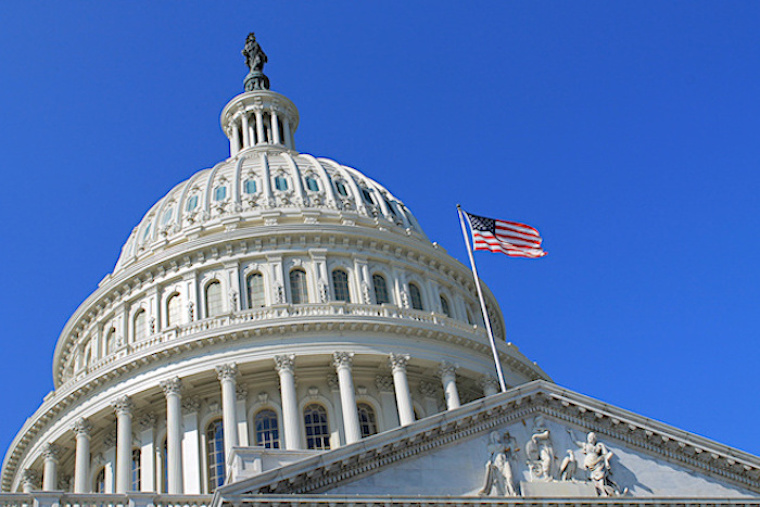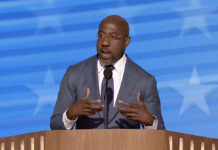
Georgia’s governor is pressing forward with a limited – and now uncertain – expansion of Medicaid coverage as supporters of fully expanding the program’s eligibility are championing new federal incentives.
The sweetened deal, which is baked into the latest round of coronavirus relief, targets the remaining 12 holdout states like Georgia that did not expand Medicaid under the Affordable Care Act.
A coalition of groups advocating for full expansion, Cover Georgia, took out full-page ads last week touting the new federal incentives in six newspapers, most of which cover communities that are home to the governor’s floor leaders and the General Assembly’s chief budget writers and leaders on health care. This year’s legislative session ends Wednesday, with any last-minute pivot to fully expand Medicaid unlikely.
Laura Colbert, who is the executive director of Georgians for a Healthy Future and a spokesperson for the coalition, said the advertising push was meant to drive awareness that “the landscape has pretty meaningfully shifted” when it comes to Medicaid expansion.
The new federal incentives could mean between $1.3 billion and $1.9 billion in federal funding for the state for two years, which could be a net gain of about $710 million to the state, according to the Kaiser Family Foundation. More than 500,000 low-income Georgians could gain health insurance coverage, including individuals who make about $18,000 a year.
The actual net gain for Georgia could be even closer to $1 billion, said Laura Harker, a senior policy analyst with the Georgia Budget and Policy Institute. The new federal perks may make a difference for some reluctant states, particularly depending on their budget needs. Georgia cut $2.2 billion from the budget last summer and has not fully restored those reductions but has seen its revenues grow.
The new incentives have already sparked interest in other GOP-controlled states, including Wyoming and Alabama.
“We’re also watching to see will this start some type of cascade effect that hopefully can leak over into Georgia,” Harker said.
The sweetened offer comes as a federal agency has halted progress on Gov. Brian Kemp’s waiver application for a limited expansion that would extend coverage to as many as 50,000. The state, though, has vowed to challenge any federal decision to revoke Georgia’s waiver application.
Lawmakers have included $76 million in next year’s budget just to start building Georgia’s program this July. And without the restrictive eligibility requirements, Georgia’s plan would become much more expensive – potentially as much as $650 million, according to GBPI.
GOP state leaders, like House Speaker David Ralston, continue to voice support for the governor’s plan.
Colbert said it’s still too early to understand whether the American Rescue Plan Act’s sweetener will win over Republican state leaders who have long called Medicaid expansion too costly. President Joe Biden signed the sweeping $1.9 trillion measure into law just this month.
Colbert said she worries state leaders will lose more time defending the governor’s health care plan.
“That’s a court case that could take years, and frankly, Georgians don’t have years to wait,” Colbert said. “And it’s silly for us to forego the benefits of expansion while waiting on a court case to play out on a program that isn’t as cost effective and doesn’t even cover as many people.”
‘Georgia will challenge the decision’
The uncertain status of the state’s limited expansion plan coupled with the sweetened deal from the White House has given state Democrats new fuel in their decade-long push for Georgia to expand the program under the Affordable Care Act.
“Y’all, come on. This is ridiculous,” state Sen. Jen Jordan, an Atlanta Democrat, said during a vote on next year’s budget. “We could cover (500,000) people in this state. We could send money to rural hospitals, we could up health care provider reimbursement rates across this state. And we’re not doing any of it.”
The Centers for Medicare and Medicaid Services under the Biden administration has objected to the Georgia program’s eligibility requirements, particularly during a pandemic. Participants would have to complete 80 hours of work or training each month to keep their health care coverage.
The federal agency is still weighing Georgia’s plan, which is part of a 10-state review process started in February under the new administration. Georgia’s health care plan was initially approved in October under former President Donald Trump.
“Medicaid’s primary objective, as outlined in statute, is to provide medical assistance serving our nation’s vulnerable and low-income individuals and families,” an agency spokesperson said in a statement. “CMS looks forward to collaborating with states — as it always has — on solutions that strengthen Medicaid’s aims.”
The state defended the program, called Georgia Pathways, in a response this month. Frank Berry, commissioner of the state Department of Community Health, said the eligibility requirements are essential to the state’s program and vowed to challenge any decision to revoke the state’s waiver.
Berry wrote that revoking the eligibility requirement “would be arbitrary, unreasonable, and unlawful.”
“The State welcomes the opportunity to discuss this matter with CMS further given the importance of providing this new coverage option for Georgians,” Berry wrote. “However, should CMS revoke approval of the waiver, Georgia will challenge the decision.”
When asked if the agency was also considering the new federal incentives, Fiona Roberts, a spokeswoman for the state Department of Community Health, said the legal teams for the state agency and the governor’s office “continue to review the American Rescue Plan.”







